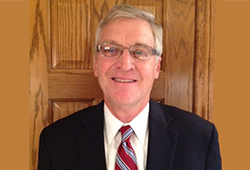Q&A – Planned Giving Basics

Recently, Jim provided some basics about estate planning. His insight is useful for those who are considering an estate plan and serves as a good refresher for those who already have a plan in place.
Q. When should someone start planning their estate?
A. People should look at the possibility of establishing a will when they become of age (18 or 21). It becomes crucial when you get married and have children. If you are looking into a comprehensive estate plan, which includes reasons to leave funds to charities or trusts for the benefit of children or grandchildren, that planning normally occurs when people are in their fifties and sixties.
Q. Should everyone have an estate plan or just those who hit certain requirements?
A. Generally speaking, everyone should have a will to take care of the disposition of property. You can’t predict what assets will be left at the end of your life. Another part of estate planning is protecting your property during your life. Everyone should have at least a power of attorney designated so someone can take over if they aren’t able to handle their affairs.
Q. Why is it important to have an estate plan?
A. In the absence of any plan of disposition of property, the property distribution is determined by state laws, which vary depending on the state. If you have no plan, what you’ve accumulated may go to persons you don’t want it to go to or don’t even know.
Q. Who should be on your estate planning team?
A. An attorney is the most important person. You can also add your spouse, accountant, financial advisor(s), investment planner, and trust officer or person who administers your current or future trust, depending on your situation.
Q. What’s the one thing you want people to know about estate planning?
A. Don’t go it alone by using the Internet as your only tool. Every state has different laws that pertain to estate planning, and it is important to have that expertise, even if your will or estate appears simple. It is important to have people with estate planning knowledge to help you. In addition, give serious consideration to the person you are appointing if you are going to have your assets managed for a period of time. It is important to very seriously consider the expertise of the people who will stand in your place to handle affairs. Sometimes a family member isn’t the best match due to conflicts of interest, lack of knowledge, or health issues.
Q. What are some of the most common questions you receive about estate planning?
A. The most common question I receive pertains to taxes associated with a person’s estate. This answer varies on the person and their situation. I receive a number of other frequently asked questions, such as:
- What happens to my personal property, like household goods or jewelry?
- Who handles my affairs during my lifetime if I am incapable to do so?
- Who will handle my affairs upon my death?
- What will my estate consist of if I die young, and what protections do I need to put in place?
- What will happen to my special assets, like business-type assets that might be difficult to manage?
- What happens to minor children if I have no plan in place?
- What happens if I have a family member with special needs or who needs assets for their lifetime?
There are a number of good articles and brochures available to help people consider the various options available to them as they try to answer these questions.
Thank you to Jim for his time and expertise. If you are interested in receiving educational materials to help you begin planning your estate or refining the plan you already have in place, please contact Sally Crino at 563-333-6080 or [email protected]. You can also browse our planned giving website to find articles related to specific topics.



